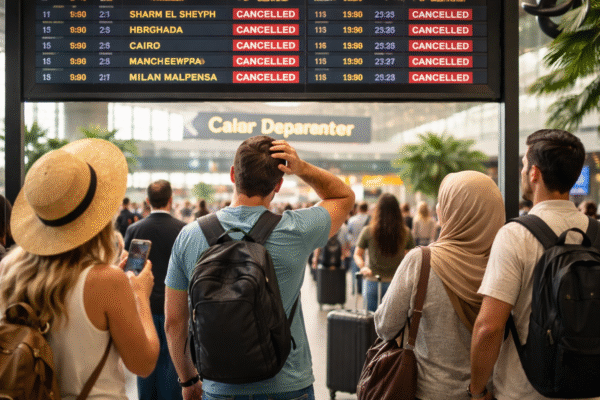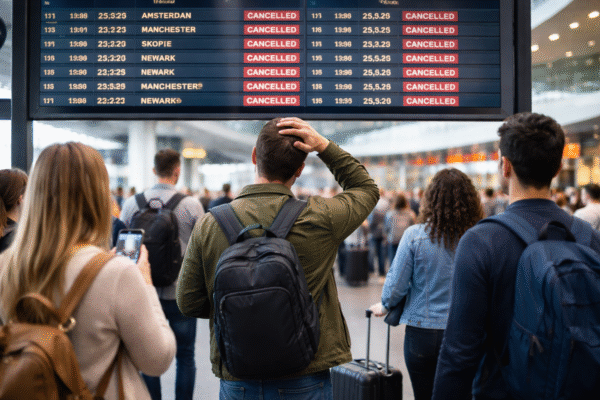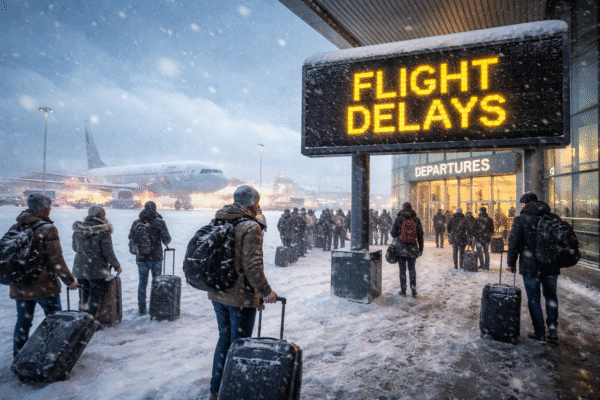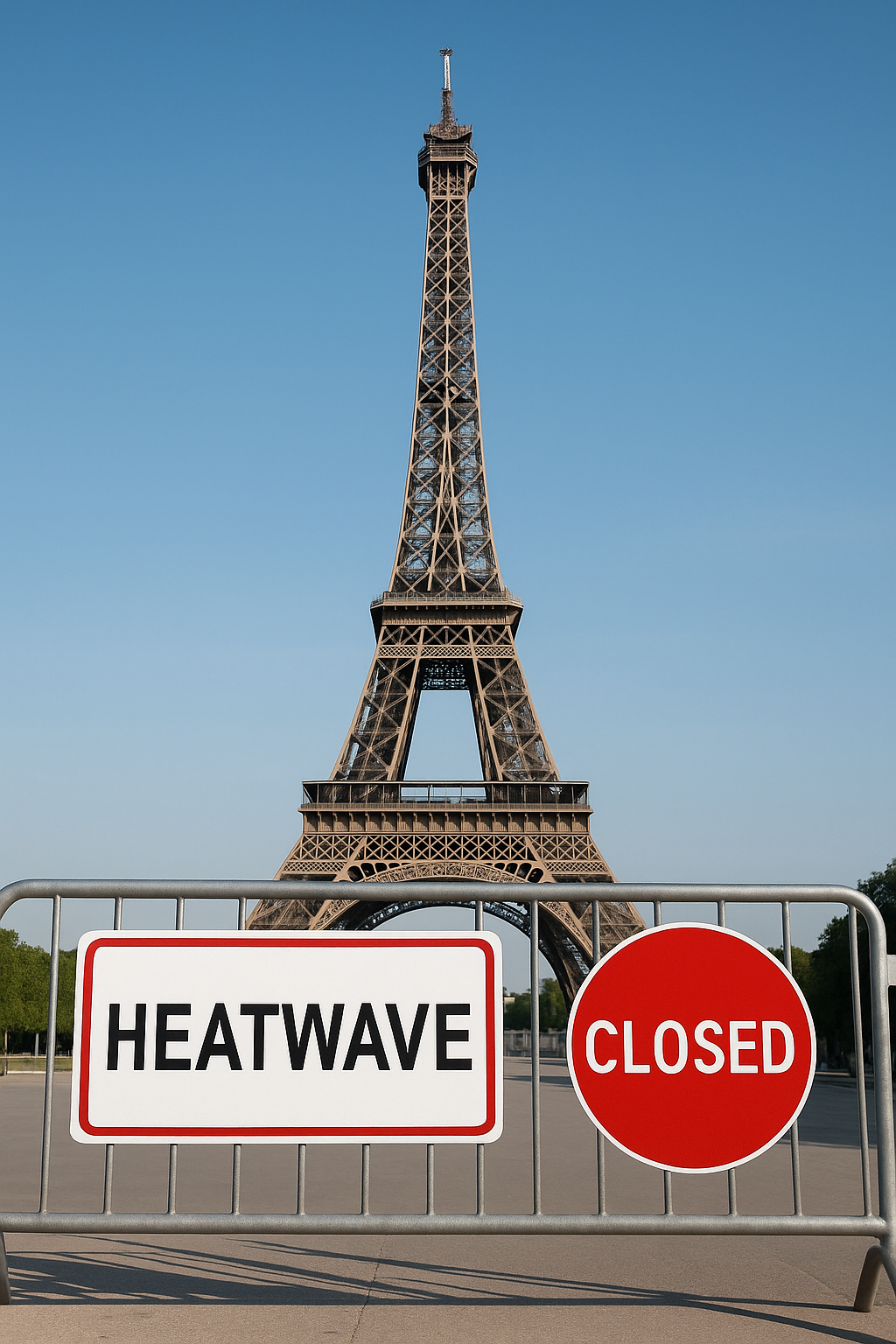As Europe confronts one of the most intense heatwaves in recent decades, travel plans across the continent are being reshaped by extreme temperatures, with iconic destinations like the Eiffel Tower in Paris temporarily closing access to protect visitors from the sweltering conditions. The tower’s summit was shut to tourists on Tuesday and Wednesday this week, as temperatures soared above 40°C (104°F) in the French capital.
While lower levels of the Eiffel Tower remained open, the summit closure served as a clear signal of how climate change is directly impacting global tourism landmarks. This heatwave, driven by a powerful heat dome and a marine heatwave in the Mediterranean, is pushing summer temperatures to record-breaking levels across France, Spain, and Portugal.
Record Temperatures Force Safety Measures at Top Attractions
According to Météo-France, the national weather agency, Paris recorded several days in a row above 38°C (100°F), prompting city officials and tourism operators to act swiftly. The Eiffel Tower’s upper viewing platform, exposed to direct sunlight with little shade or airflow, was deemed unsafe for visitors, especially those unaccustomed to such heat.
At the same time, France’s Ministry of Health issued heatwave warnings and recommended avoiding outdoor activity during peak sun hours. Tourists visiting other outdoor attractions — from boat tours on the Seine to street markets in Montmartre — found themselves seeking air-conditioned interiors or shifting plans to early morning and late evening.
Mediterranean Temperatures Surge: Spain and Portugal Hit Historic Highs
Beyond Paris, the travel impact is being felt across the Iberian Peninsula. Spain’s El Granado recorded over 46°C (114.8°F), the highest June temperature ever for the country. In Portugal, the central town of Mora, near Lisbon, faced similar extremes.
In response, many visitors redirected their itineraries toward shaded or indoor attractions like the Museu Nacional de Arte Antiga in Lisbon or Madrid’s famed Museo del Prado. Tour operators in both countries are adapting by shifting tours earlier or offering more indoor cultural experiences.
According to Spain’s AEMET weather agency, these unprecedented highs are part of a growing pattern. “Marine heatwaves in the western Mediterranean are not only warming waters but amplifying the strength and persistence of heat domes across southern Europe,” stated meteorologist David Suárez.
Wildfires and Infrastructure Strain Add to Travel Disruptions
This summer’s conditions have also triggered wildfires across southern France and Portugal, leading to evacuations and temporary road closures in affected areas such as Aude and Castelo Branco. Tourism operators have warned travelers to stay informed and monitor E.U. Copernicus emergency alerts, especially if traveling by road or near rural landscapes.
Additionally, public transportation systems — from buses in Madrid to Paris’ Metro — are experiencing delays due to the extra stress on electrical infrastructure. Airlines, including Air France and Iberia, have advised travelers to check flight updates frequently, particularly for routes serving heat-impacted cities.
Tourist Safety and Smart Travel Strategies During a Heatwave
With no immediate relief in sight, European tourism boards and public health agencies are advising visitors to stay vigilant and prepared. Here are recommended precautions:
- Hydrate Frequently: Carry reusable water bottles. Many European cities offer public refill stations.
- Avoid Peak Sun: Tour in the early morning or post-5 p.m. when temperatures drop.
- Prioritize Indoor Attractions: Museums, churches, aquariums, and shopping galleries offer both culture and air conditioning.
- Book Climate-Controlled Stays: Not all accommodations in historic European cities have air conditioning; verify amenities before booking.
- Track Official Alerts: Use apps such as Météo-France, AEMET, and IPMA for updated forecasts and safety recommendations.
A Preview of Tourism’s Future in a Warming World
This summer’s disruption is a reminder that climate volatility is now a tourism issue, not just an environmental one. Experts from the European Environment Agency (EEA) warn that extreme weather events — heatwaves, floods, droughts — will increasingly shape both how and when people travel.
Europe’s peak summer months may need to be re-evaluated by both travelers and tour operators. Shoulder seasons like April-May and September-October may become more attractive for culturally rich destinations like Paris, Barcelona, and Rome.
France’s Tourism Ministry is already exploring adaptive strategies, such as extended opening hours for indoor sites, climate-conscious tourism education, and the development of “cool zones” within cities.
Conclusion: Adapting European Travel to a Hotter Reality
As climate change redefines summer travel norms, visitors to Europe must prepare for greater weather variability. The temporary closure of the Eiffel Tower summit is more than an inconvenience; it symbolizes a broader challenge facing global tourism in a warming world.
Despite the heat, Europe remains a rich and rewarding destination, filled with history, art, and natural beauty. With thoughtful planning — and attention to evolving climate conditions — travelers can still enjoy memorable, safe experiences across the continent.
For more travel news like this, keep reading Global Travel Wire















